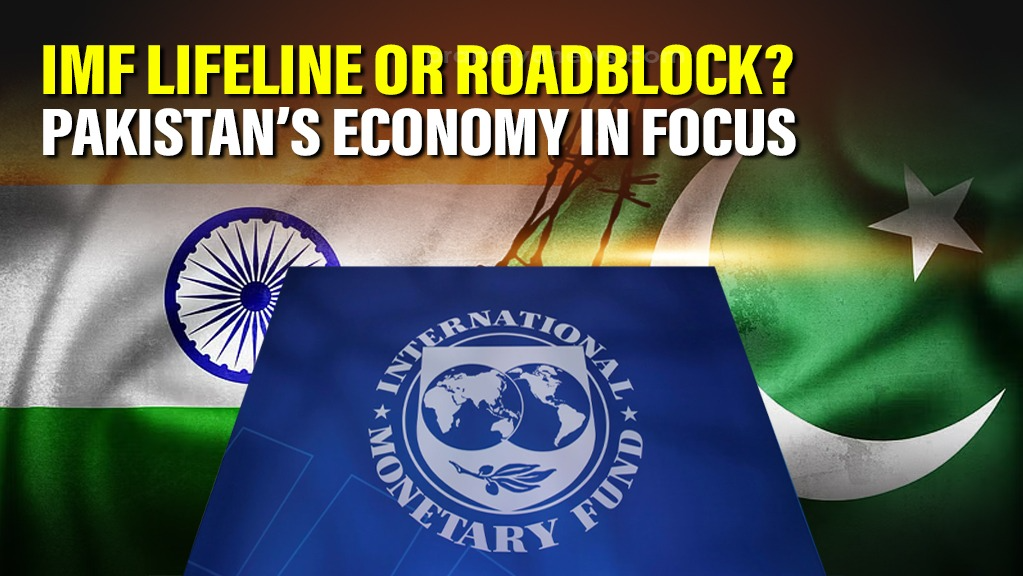

Pakistan's deeply strained economy is under intense scrutiny today, May 9, 2025, as the International Monetary Fund (IMF) board convenes in Washington to review the nation's existing financing facilities. This crucial meeting occurs against a backdrop of severe economic challenges for Pakistan—including soaring foreign debt and perilously low foreign exchange reserves—and escalating tensions with India, particularly following the April 22nd Pahalgam terror attack. India has signaled strong opposition to further financial assistance, alleging misuse of funds, adding a critical geopolitical dimension to the economic deliberations. The prevailing sentiment is that Pakistan's overstretched economy is ill-equipped to weather any protracted military conflict.
Pakistan's Troubled Economy
For years, Pakistan has navigated a treacherous economic path, characterized by a near-constant balance of payments crisis, high inflation, and an increasing reliance on international bailouts. The nation's external debt surpassed $130 billion in 2024, with a significant portion, estimated at over one-fifth, owed to its close ally, China. In stark contrast, Pakistan's foreign exchange reserves hover just above $15 billion, sufficient to cover merely three months of essential imports. Compounding this vulnerability, over $22 billion in public external debt is maturing in the fiscal year 2025, including nearly $13 billion in bilateral deposits, underscoring the urgent need for continuous financial inflows.
Despite securing a $7-billion loan package from the IMF in September 2024, which prevented an imminent collapse, Pakistan's economy remains on a knife's edge. While the IMF's latest South Asia Development Update noted some nascent signs of recovery, such as slowing inflation and improved consumer confidence, incoming data on overall economic activity has been weaker than anticipated. Projections indicate modest economic growth, rising from 2.5% in 2023-24 to a projected 3.1% in 2025-26, a stark contrast to the contraction experienced in 2022-23.
IMF Deliberations and India's Opposition
Today's IMF board meeting is a pivotal moment for the ongoing 37-month Extended Fund Facility programme. The release of the next tranche, approximately $1 billion, is contingent upon a successful performance review. However, India is poised to vehemently oppose additional funding, citing concerns that previous financial aid has been diverted towards terror financing. New Delhi has urged IMF board members to conduct a thorough assessment, taking these allegations into account, especially in light of the recent Pahalgam terror attack. This opposition introduces significant uncertainty into Pakistan's efforts to secure continued financial support.
Why a Long War is Too Costly
The fragile state of Pakistan's economy renders any prospect of a sustained military conflict with India economically untenable. Experts and rating agencies like Moody's have consistently highlighted this vulnerability. Moody's cautioned that "sustained escalation in tensions with India would likely weigh on Pakistan’s growth and hamper the government’s ongoing fiscal consolidation, setting back Pakistan’s progress in achieving macroeconomic stability." Such a scenario could also impair Pakistan's access to crucial external financing and further deplete its already strained forex reserves. While a conflict would inevitably impact India, its significantly larger and faster-growing economy is considered far more resilient to such shocks.
Deep-Rooted Structural Challenges
Beyond immediate liquidity concerns, Pakistan grapples with profound structural economic problems that have remained largely unaddressed. These include persistent high fiscal and current account deficits, chronic political instability, low agricultural and industrial productivity, and an inefficient, import-dependent energy sector. The country's energy crisis, marked by an unreliable supply and high costs, significantly hampers economic activity. Furthermore, a narrow taxpayer base and heavy government interference in business stifle growth. Natural disasters, such as the devastating 2022 floods, have only exacerbated these economic woes, leading to a rise in poverty, with the World Bank estimating that an additional 2.6 million Pakistanis fell below the poverty line in FY24.
Experts like Yousuf Nazar, former head of Citigroup’s emerging markets investments, have noted in the Financial Times that protracted hostility could severely damage Pakistan's agriculture sector, a cornerstone of its economy employing nearly 40% of the labor force. Any disruption, such as India's potential suspension of the Indus Waters Treaty, could have devastating consequences.
A Dangerous Path
Pakistan stands at a critical economic juncture. Its ability to navigate the path to stability hinges on securing continued support from multilateral institutions like the IMF and World Bank, implementing deep structural reforms, and maintaining regional peace. The IMF's assessment today, influenced by both economic performance and geopolitical pressures, will be a key determinant of its immediate financial future. Given its profound economic vulnerabilities, engaging in any form of extended conflict would not only be a strategic miscalculation but could trigger a complete economic collapse, with dire consequences for its population.